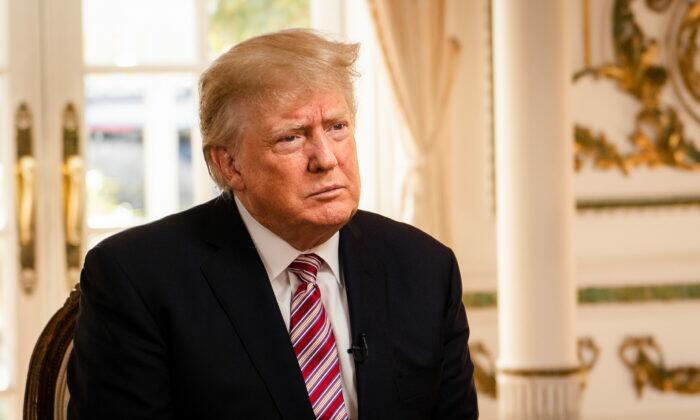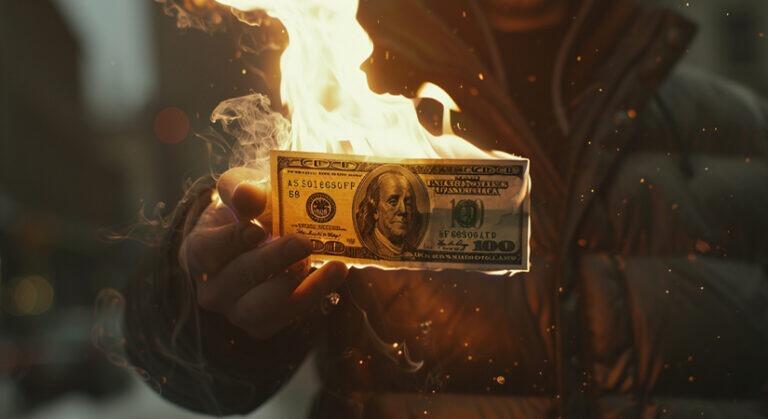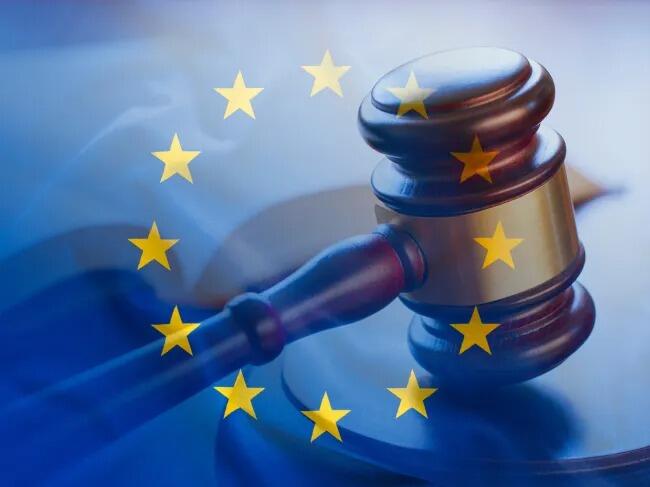As most foreigners, I find it difficult to chose between two geriatric candidates. The problem is that both have been president so we know their policies. Trump is more theatrical but he will support Israel with the risk of a conflict with Iran, even if he could slightly lower tensions in Ukraine.
As for the economy, we are heading into a recession. The only question left is before or after the election. The Deep State will do its very best to delay, knowing that a recession will endanger Biden but do they have this power? The currency market is showing signs of cracks and it's by far the largest...
But in the long term, the concern in the US is not the market but the rule of law. And in that respect, what we are seeing is extremely concerning. The DOJ and the administration are truly out of control. Freedom is under attack from almost every angle. And unfortunately if the US falls then the rest of the West will follow suit.
Will 2024 turn out as the most important year in our lives? It very much could.
Authored by James Rickards via the Daily Reckoning,
This is a highly consequential election year, to say the least. The policy differences between Biden and Trump are enormous. Whether it’s taxes, regulation, borders, energy or foreign policy, the differences couldn’t be clearer.
And though I prefer to focus my analysis on markets alone, I can’t. These days especially, politics plays too great a role in how markets behave.
But this year’s election is about far more than policy.
In the past, the D.C. establishment could live with a typical Republican or Democrat. They knew neither candidate would rock the boat too much if he got elected. Both candidates were cut from the same basic cloth and played by the accepted rules.
But all that goes out the window with Trump.
He’s the most polarizing political figure we’ve seen in our lifetimes. You’d probably have to go back to Andrew Jackson to find a parallel.
And it’s clear that Trump’s political enemies will stop at nothing to keep him out of the White House this time.
Lawfare
“Lawfare” is their primary tactic. They just want to get Trump convicted of a felony before the election so they can brand him a criminal, believing that the American public won’t elect a convicted felon.
They don’t care if the conviction is subsequently overturned by a higher court. The damage will already be done. And if it trashes the Constitution, Trump’s political enemies are prepared to live with that.
They’re convinced that Trump is the equivalent of Hitler and that he’ll destroy democracy if he’s elected. So in their minds, the ends justify the means. They’ll justify any action, legal or illegal, to ensure his defeat.
They don’t seem to realize that the harder they go after Trump with bogus charges, the more popular he becomes.
I’m not here to defend Trump or oppose him. No doubt, he’s a deeply flawed character with personality traits that alienate many people. But voters don’t expect a billionaire real estate magnate from New York City to be a saint. They vote for him because they think he can get things done.
And under honest democratic elections, the administrative state, or deep state, whatever you want to call it, stays out of it. But that’s not the system we have today.
And that should concern every American, regardless of his or her political affiliation.
Again, it doesn’t matter if you love Trump or hate him. But in a democracy, the people rule. Not the bureaucrats. And if the people elect Trump, then he should be allowed to enact the policies that got him elected. That didn’t happen when he won in 2016.
Stop Trump!
The first two years of his administration were hobbled by the fake Russian collusion hoax and the numerous investigations that resulted. Those investigations showed that there was no collusion between Trump and Russia, but Trump’s enemies didn’t care (and certainly did not apologize).
They just moved on to the next fake scandal, which was the first impeachment over a brief phone call to Ukrainian President Zelenskyy asking about Biden family corruption. It turns out that Biden family corruption was rampant in Ukraine, but that didn’t stop phony “whistleblowers” (actually lawbreakers) like Eric Ciaramella from leaking classified transcripts to Adam Schiff to get the impeachment process going.
Trump was acquitted by the Senate. Then came the second impeachment where Trump was also acquitted. Since leaving office, Trump has been hit with federal criminal charges relating to Jan. 6 and the Mar-a-Lago raid, as well as state criminal charges in New York and Georgia.
Trump’s enemies never quit. They’re also going after Trump’s advisers and confidants. It’s meant to isolate Trump because anyone who advises him will fear they’ll be hauled into court on some bogus charge and have to spend a fortune on lawyers, win or lose.
The latest lawfare tactic has been unveiled against Trump attorney John Eastman. It’s called “debanking.”
Good Luck Living Without a Bank
In Eastman’s case, it started with Bank of America closing his bank accounts for no good reason and with no recourse. Then he turned to his accounts at USAA, which specializes in accounts for military veterans and their families. Shortly thereafter, USAA also closed Eastman’s bank accounts.
We tend to take banking services for granted and don’t think much about what would happen if we were shut out of the banking system. No checks, no savings accounts, no wire transfers, no ATMs, no bank-issued credit cards, no lines of credit or mortgages, etc.
It’s like trying to survive without food or water. It’s impossible. And that’s the whole point. It’s designed to make the victim’s life miserable.
The same thing happened in the U.K. when NatWest and Coutts debanked Nigel Farage, leader of the Brexit movement. Farage fought back and the CEO of NatWest was eventually fired over the incident. But it was a brutal fight and a tough transition for Farage when he suddenly found himself debanked.
Unfortunately, debanking is just an extension of the “woke” cancel culture that’s taken root in much of the West.
Shut up, Bigot!
When we look around at places like New Zealand and Scotland, there seems to be a bizarre competition to see which country can pass the most fascist laws and imitate George Orwell’s dystopia in Nineteen Eighty-Four in the least amount of time.
Scotland has imposed so-called hate crime laws that subject you to imprisonment for exercising free speech if it happens to offend a long list of protected parties. No actual violence or physical act is needed. If you simply say the wrong thing, you can be arrested, fined and imprisoned for “inciting hate.”
A similar law has just passed in Ireland. The Polish government wants to pass a law that makes it a crime to “defame” members of the LBGT community. Of course, the term “defame” is ill-defined and is in the eye of the beholder. Any choice of words, even if derogatory or hurtful by some standard, should be protected by free speech provisions. But in Poland, it may soon land you in jail.
I’ve never understood hate crime laws anyway (and I’m a lawyer). If you murder someone, it’s murder. If you assault someone, it’s assault. Subject to due process of law, you should go to jail if convicted or perhaps face capital punishment.
Prosecutors have to show intent, but what does “hate” have to do with it? The perpetrator may, in fact, hate the victim but that’s not the crime. The crime is assault or murder. Those crimes have been considered crimes for millennia.
Nineteen Eighty-Four Was Supposed to Be Fiction
Adding hate to the definition just blurs the line between thought and action in ways that make it easier for fascist governments to target political enemies with flimsy allegations of “hate” when no actions were involved.
The most egregious example of this trend toward thought crimes is Canada. The chief neo-fascist there is Prime Minister Justin Trudeau. He has proposed a law called the Online Harms Act that expands the definition of “discrimination” to include online speech “likely to foment detestation or vilification of an individual or group.”
What exactly does this law mean by “foment”? Who defines “vilification” or “detestation”? What’s the definition of “group”?
All of these questions will be answered by a new Digital Safety Commission, which will not be bound by “any technical or legal rules of evidence.” If accused, you can be ordered to pay $20,000 to any “victim” and $50,000 to the state with no limit on how many victims might crawl out of the woodwork.
This is practically an invitation for grifters and activists to attack political enemies with fake claims of having been subject to “detestation.” It gets worse. If a court believes you are likely to commit a “hate crime” under this law, you can be placed under house arrest and held in isolation.
In other words, just thinking the wrong thing as imagined by an unaccountable magistrate is enough to put you under house arrest. This is actually worse than what the Thought Police did in Orwell’s novel.
You can expect censorship in the U.S. to increase as we get closer to the November election. Get ready for it.
Nineteen Eighty-Four was supposed to be fiction. Unfortunately, it’s becoming reality.









